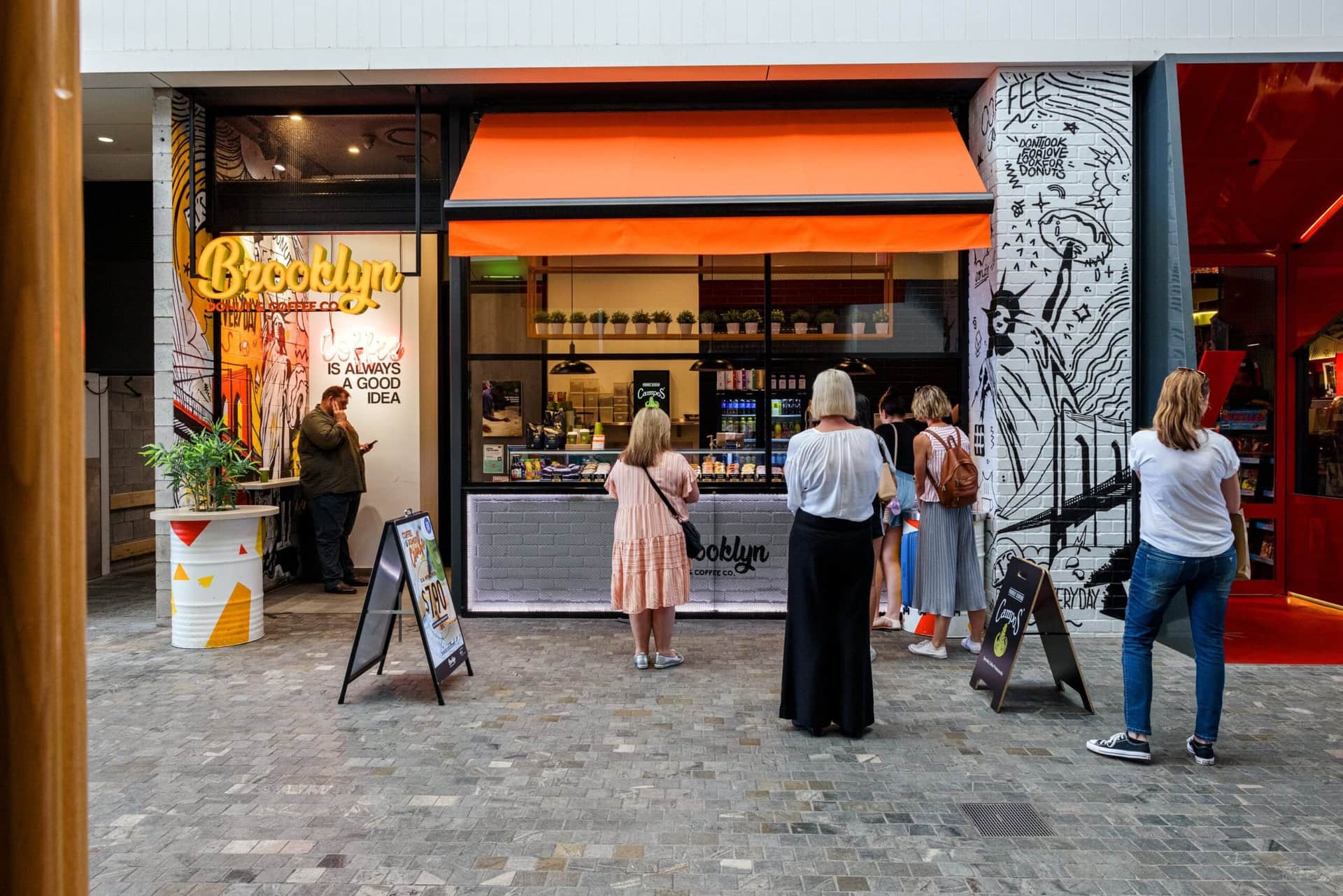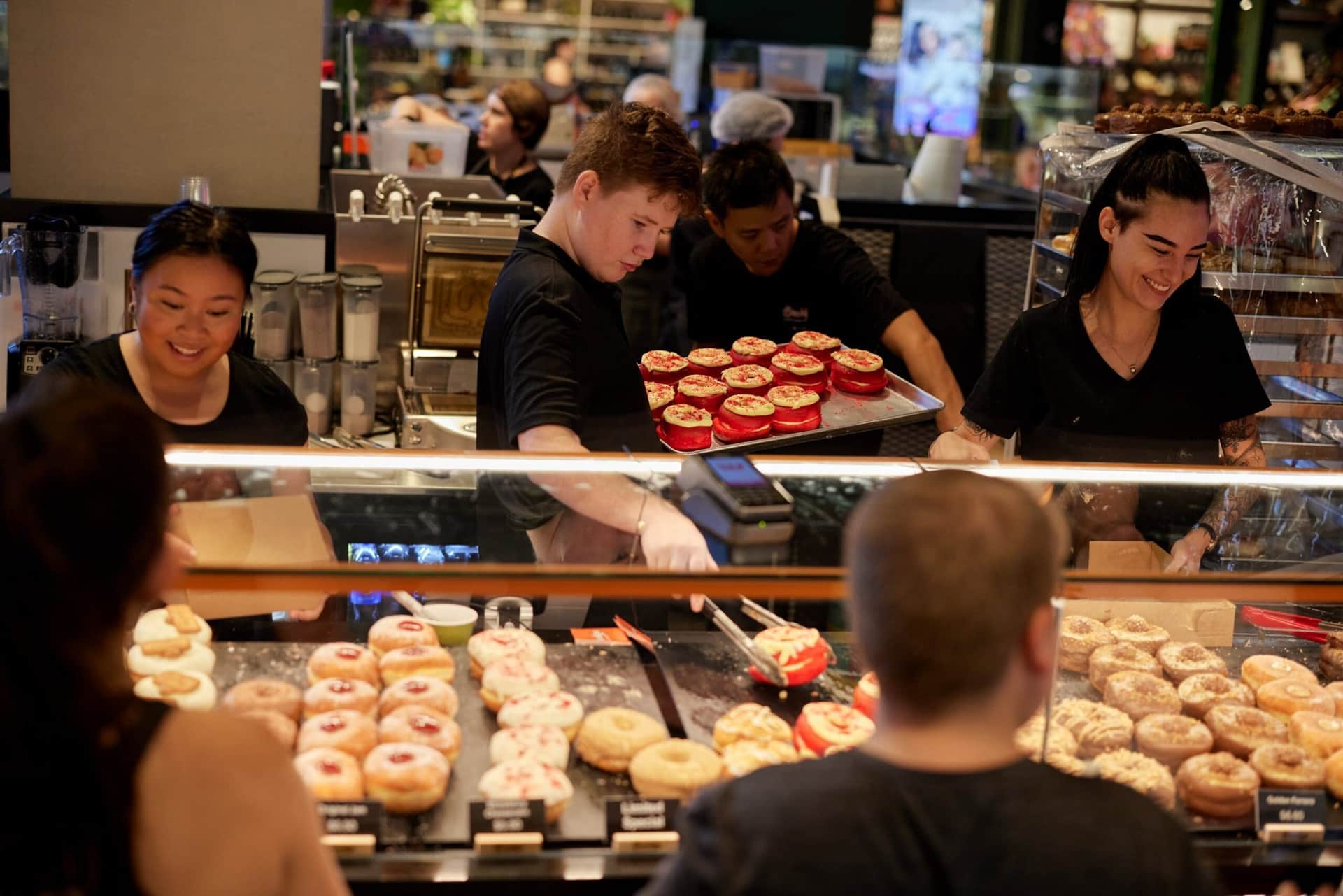We wanted a system that ensured we could keep a close eye on our produce 24/7 to prevent issues when equipment broke down overnight and people weren’t on site. We want to be able to guarantee all stores are going to maintain high quality and keep their product in great condition.

Brooklyn Donut & Coffee Co
How a Brisbane-based donut store is harnessing the power of sensors to put its customers first
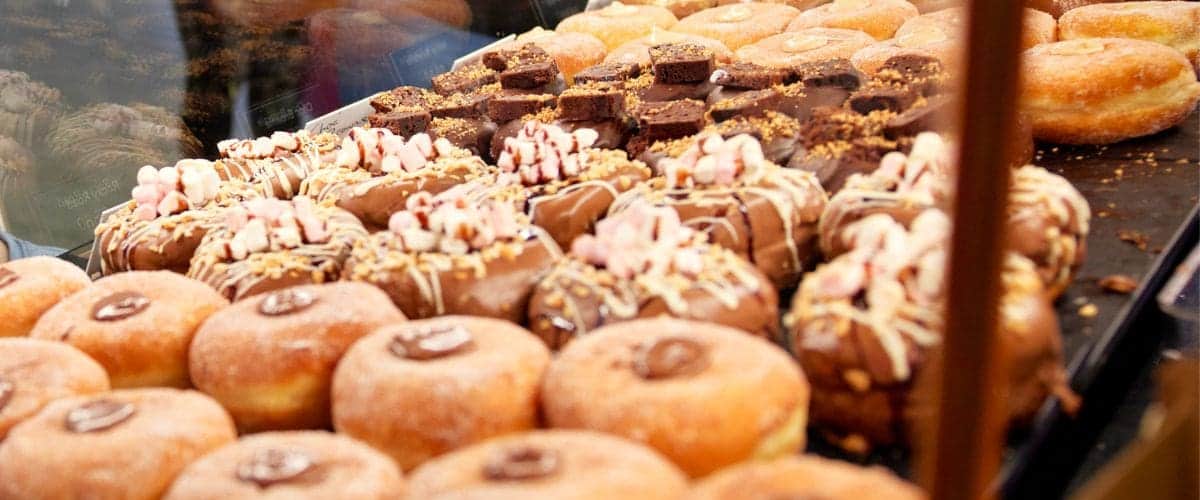
We use SafetyCulture for
Actions
Heads Up
Inspections
Issues
SafetyCulture Platform
Sensors
Inspired by the donut connoisseurs of New York City,Brooklyn Donut & Coffee Co bakes irresistibly delectable donuts, fresh every day. Baked Down Under, this team prides itself on giving customers ‘real’ donuts – which roughly translates to: ‘Tastes like happy’ (their tagline).
That’s right, ‘quality’ is the most important driver for Brooklyn Donut because it’s what leads to customer satisfaction. Part of what makes its donuts top quality is that it only uses the freshest ingredients. (Think: real couverture chocolate, traditional flavors pulling from childhood nostalgia. None of the fake stuff.)
The best ingredients make up just one component in the recipe for Brooklyn Donut’s success. The other components? The team’s dedication to being best in class – which needs 24/7 visibility and rapid action – and providing an excellent customer experience.
Brooklyn Donut’s national expansion planned for the next 24 months must be built on robust systems and SafetyCulture’s solution is one of the major pieces of the puzzle to help achieve this. Four years ago, they started using Inspections to automate its checks and processes. Today, they’re rolling out our automated Sensors across all stores.
Here’s the story of how Brooklyn Donut took its operations from good to great, guaranteeing food integrity and customer satisfaction every step of the way.
Inspections: simplifying processes for a better customer experience
Running a franchise, day in, day out, involves daily management tasks from all teams – from opening and closing,food safety and preparation,cleaning and maintenance, and incident reports. So Brooklyn Donut needed to eliminate processes that would distract from delivering on customer experience.
Over the past four years, they’ve been using Inspections across their Queensland-based stores. What used to be paper-based has now been digitized through the SafetyCulture platform. The outcome? A dramatic increase in their operational efficiency because of time saved.
“We have a wide variety of donuts for our customers, and a LOT of work goes into preparing that every day,” says Brittany Lendrum, Training and Safety Manager at Brooklyn Donut. “So we want to remove any unnecessary steps, so our kitchen staff can focus on creating a great product and a great customer experience.”
Sensors: the hole-in-one strategy for success
Brooklyn Donut & Coffee Co is rolling out fridge and freezer sensors at all nine of its existing stores, as well as its five stores opening in the next six months. Each store, based within shopping centers, consists of two different zones:
A kiosk: where customers can buy donuts and coffees, with all SafetyCulture Sensors connecting to an ethernet gateway.
A stock room : essentially a walk-in freezer, located about 200 meters from the kiosk. These sensors are connected to cellular gateways pushing all the data back to the one SafetyCulture platform.
Preventing major stock loss events
Any stock loss can significantly impact a business and its bottom line. Before SafetyCulture, Brooklyn Donut conducted manual temperature monitoring. Sure, it ticked the box for food safety compliance. But the problem was, it didn’t give the business 24/7 visibility over its most valuable asset – the produce. Manual temperature monitoring proved inconsistent, labor intensive, and increased risk of stock loss.
For Brooklyn Donut, this hit home when a stock loss event at one of their franchises caused a huge financial (and emotional) strain. “It was a new store opening. The power supply had an issue, and one of our franchise partners lost a lot of stock,” says Brittany.
Since introducing the automated monitoring of SafetyCulture Sensors, teams are now able to be notified whenever the equipment is out of temperature range for an extended period of time. Upon hindsight, “this would’ve been game-changing, as we would have avoided such a stock loss,” Brittany reflects.
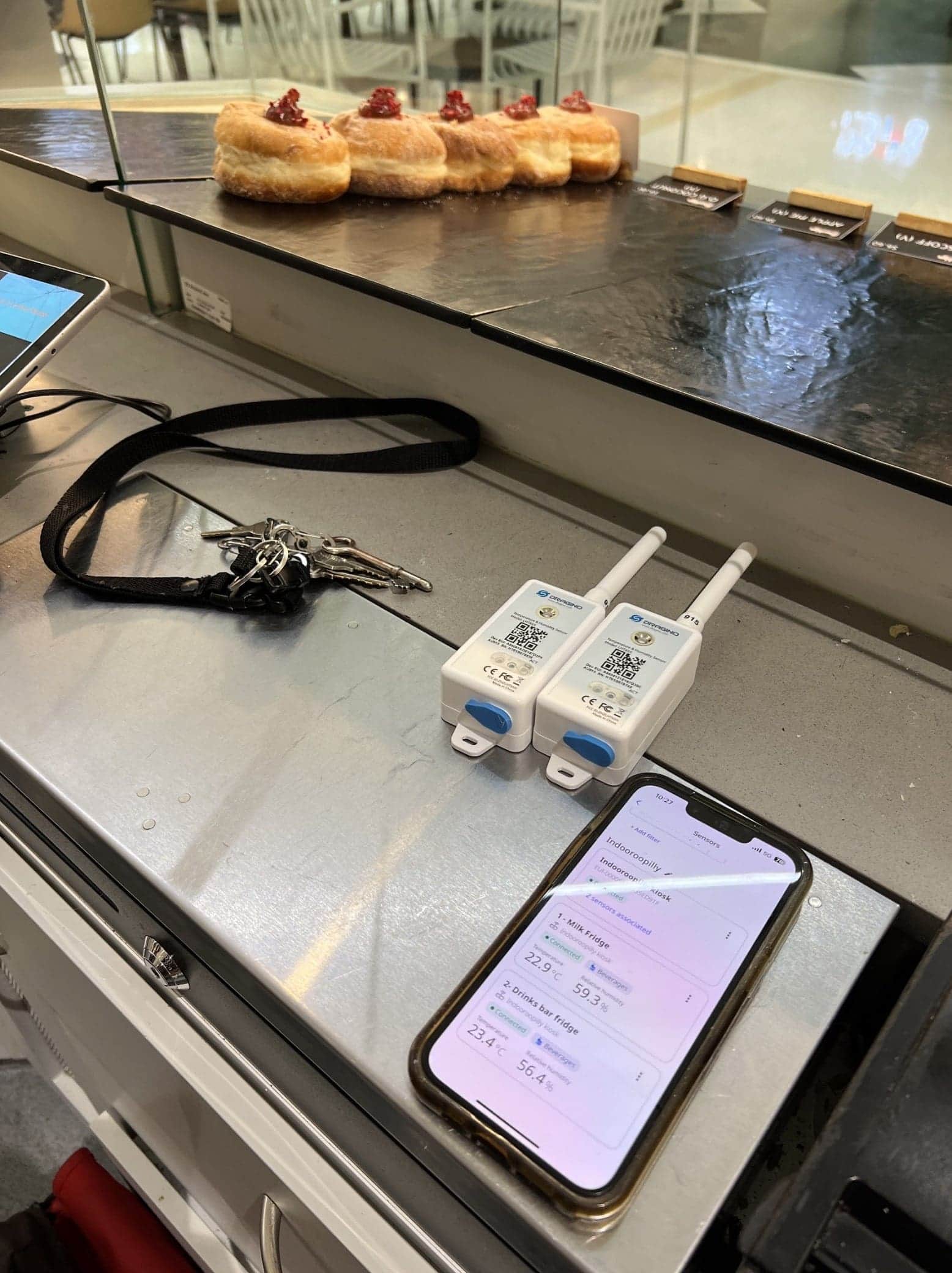
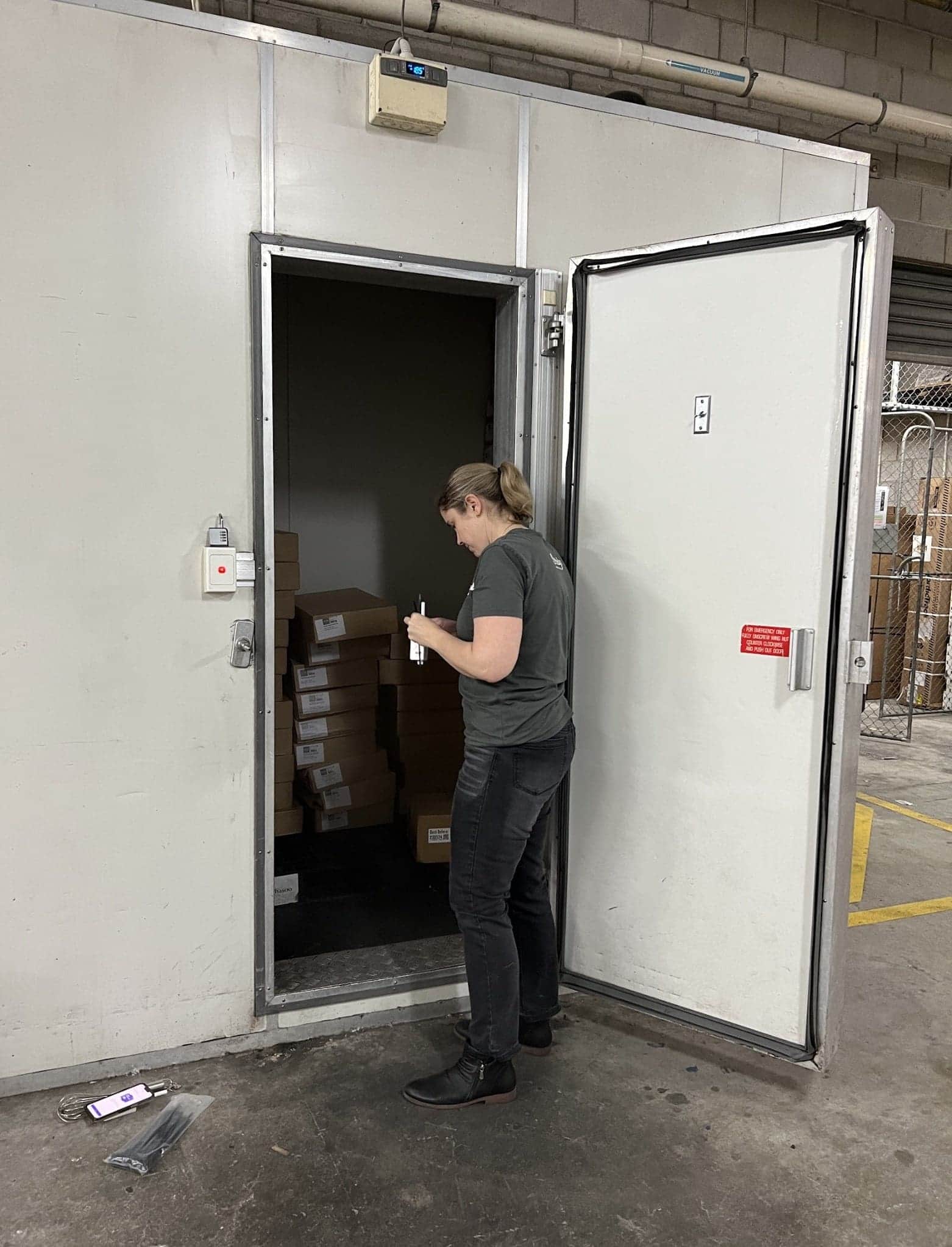
Reducing the pressure on training casual staff
The rate of growth for Brooklyn Donut was impressive – but training staff across its growing franchises was proving more and more difficult. Brooklyn wanted to ensure brand standard consistency across all locations.
Brooklyn owes much of its success to its great franchise partners, but with multiple owners, teams, and sites – they’d need to work harder to ensure staff training and store operations were consistent. (A concern that’s particularly relevant in an industry with an ever-changing casual workforce.)
Before using the SafetyCulture platform, frontline staff were trained on how to take manual temperature checks on fridges, and coolrooms. Every fridge would have a water bottle placed on the top shelf, which staff would take temperature readings from at the start and end of every shift. You can imagine this manual process came with issues, such as false probe readings and pure human error – issues that kept the brand owners up at night.
Automated temperature monitoring meant that Brooklyn Donut could ensure brand and quality consistency. And with the manual ‘water bottle technique’ phased out, it meant the organization was able to save time and money on training new staff.
“Temperature monitoring training takes about 30 minutes for every new employee. And even then is prone to error and mistakes,” Brittany says.
“Automated monitoring ensures we don’t have to rely on training – it eliminates the uncontrollable element and so we don’t risk any human error. It means that we get an extra half an hour back to do other things.”
Accessing always-on remote visibility
With manual temperature checks happening just twice a day within working hours, any fridge failures outside of those two checks remained unaccounted for – another contributor to stock loss. Since using Sensors, all team members now have 24/7 remote visibility, saving time and money.
“The fact that we have 24/7 access and alerts on our mobile phones, saves so much money and issues. The convenience of remote checking – it’s so good!” Brittany says. “We can check it at our corporate support center, we can check it for our franchise partners – all without being on-site. We can avoid things before they go wrong. And everyone who can help, can have access to it, which is really useful.”
Empowering frontline employees
SafetyCulture was initially brought on to help make the lives of Brooklyn Donut’s leaders easier. But what they found was their frontline donut artisans were the ones that found the most value out of it.
Having full visibility of any incidents and risks led to a cultural change throughout the organization – changing each team’s attitudes from reactive (e.g. coming to work in the morning to find the fridges had failed overnight) to proactive (e.g. having the correct procedures in place from the second the automatic sensors detect an out-of-temperature period).
“Our frontline staff agreed that it’s a time and energy saver,” Brittany explains. “It ensures that they can focus on the things that are actually important around customer experience, quality service and delivery of great coffee and donuts.”
SafetyCulture Sensors were really easy to implement. I was concerned it would be more complicated – especially in the coolroom fridges. Easy to set up on mobile and the implementation was self-explanatory on the app.
Maintaining quality as the business scales
With a national rollout starting this year, automated monitoring will help control quality as it becomes more difficult to manage over multiple sites and states.
A national store rollout brings with it many opportunities, but on the flip side, risk profile increases, and robust systems help in mitigating this in a real-time retail environment. Brooklyn Donut will continue to use SafetyCulture to help maintain its level of quality across the board.
“We’re very excited to keep using SafetyCulture and having it installed across our entire network,” Brittany explains. “We want to keep quality assurance while operating our support center from another state. This helps us guarantee quality standards on a national level.”
More customer stories

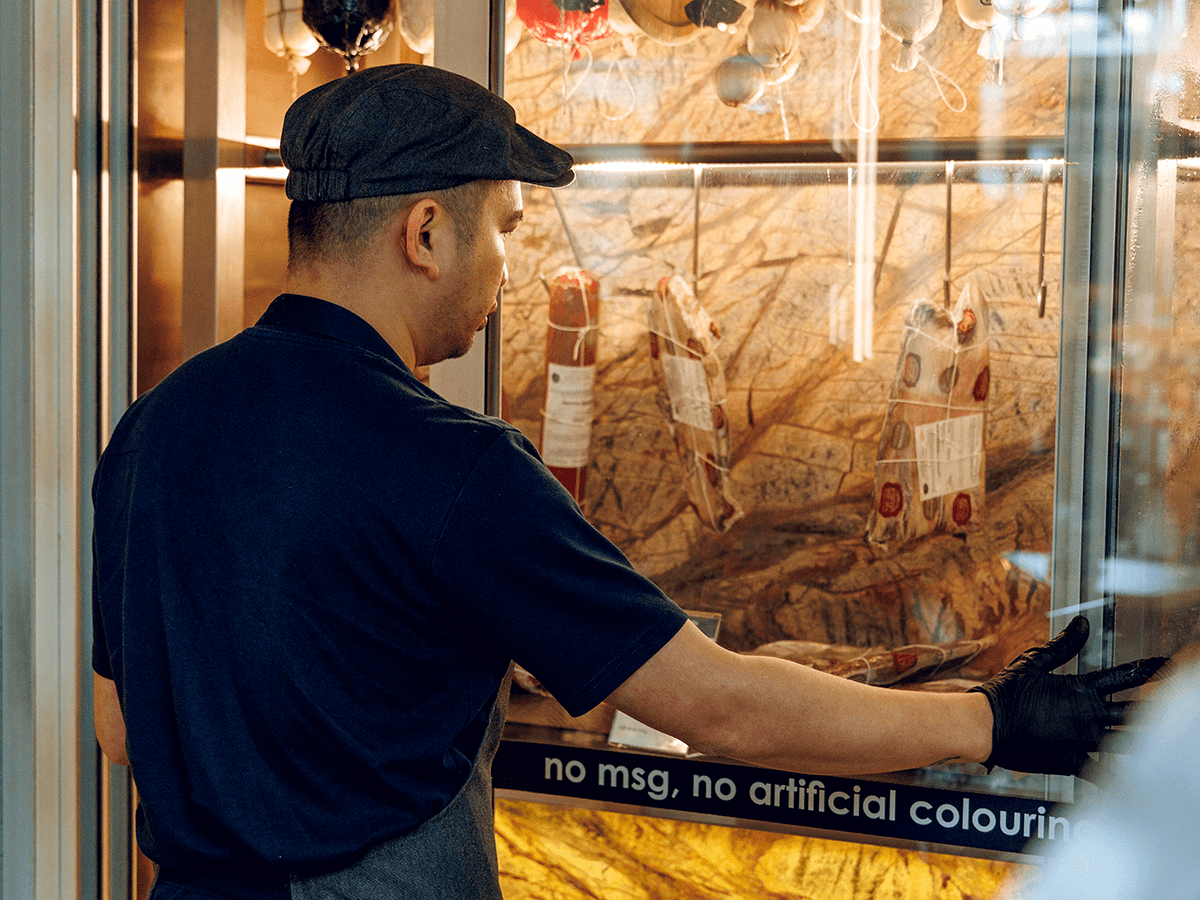
Jones the Grocer
Amid a rapid global expansion, Jones The Grocer is using SafetyCulture Training to keep teams informed, engaged and ready to deliver world-class customer service.


FISHBOWL
Discover how FISHBOWL uses SafetyCulture to improve training, excel in food safety, and set high standards for fresh, healthy fast food as they grow across Australia and USA.


Accor Hotel Group
Discover how Accor delivered 5-star service while staying COVID-safe with SafetyCulture.
Looking for more inspiration?
Explore more stories, expert guides, and thought leadership from SafetyCulture
